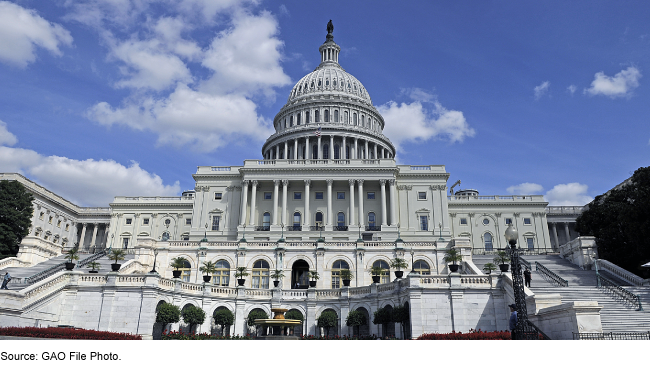Government
If You're Looking For A Link To the Mueller Report, Look No Further
Editor's Note:
We're not downloading the entire Mueller report, but here is the Justice Department URL to read the report at:
Report On the Investigation Into Russian Interference In The 2016 Election, Vol I and II; Special Counsel Robert S. Mueller, III
https://www.justice.gov/storage/report.pdf?_ga=2.80421777.744576135.1555603755-461170982.1555603755
Mueller received the following military awards and decorations:
 |
 |
 |
 |
||||
 Kaiser Health News*: May 11th Era of ‘Free’ Covid Vaccines, Test Kits, and Treatments Is Ending. Who Will Pay the Tab Now?
Kaiser Health News*: May 11th Era of ‘Free’ Covid Vaccines, Test Kits, and Treatments Is Ending. Who Will Pay the Tab Now?
"Medicare beneficiaries, those enrolled in Medicaid — the state-federal health insurance program for people with low incomes — and people with" Affordable Care Act coverage will continue to get Covid vaccines without cost sharing, even when the public health emergency ends and the government-purchased vaccines run out. Many people with job-based insurance will also likely not face copayments for vaccines, unless they go out of network for their vaccinations. People with limited-benefit or short-term insurance policies might have to pay for all or part of their vaccinations. And people who don’t have insurance will need to either pay the full cost out-of-pocket or seek no- or low-cost vaccinations from community clinics or other providers. If they cannot find a free or low-cost option, some uninsured patients may be forced to skip vaccinations or testing." more »
 Congressional Budget Office: Federal Budget Deficit Totals $1.4 Trillion in 2023; Annual Deficits Average $2.0 Trillion Over the 2024–2033 Period
Congressional Budget Office: Federal Budget Deficit Totals $1.4 Trillion in 2023; Annual Deficits Average $2.0 Trillion Over the 2024–2033 Period
"The cumulative deficit over the 2023–2032 period that we now project is $3 trillion larger than we projected last May, mainly because of newly enacted legislation and changes to the economic forecast that boost interest costs and spending on mandatory programs. Federal debt held by the public is projected to rise from 98 percent of GDP in 2023 to 118 percent in 2033 — an average increase of 2 percentage points per year. Over that period, the growth of interest costs and mandatory spending outpaces the growth of revenues and the economy, driving up debt. Those factors persist beyond 2033, pushing federal debt higher still, to 195 percent of GDP in 2053. The increase in mandatory spending is driven by rising costs for Social Security and Medicare. Total discretionary spending falls in relation to GDP. As the cost of financing the nation’s debt grows, net outlays for interest increase substantially." more »
 Women's Congressional Policy Institute: Bill to Assist States in Carrying Out Projects To Expand Child Workforce; Joint Resolution Removing Deadline For Ratification of Equal Rights Amendment; Bill to Reserve Access to Abortion
Women's Congressional Policy Institute: Bill to Assist States in Carrying Out Projects To Expand Child Workforce; Joint Resolution Removing Deadline For Ratification of Equal Rights Amendment; Bill to Reserve Access to Abortion
Women's Congressional Policy Institute: "A resolution supporting the observation of National Trafficking and Modern Slavery Prevention Month to raise awareness of, and opposition to, human trafficking and modern slavery; A bill to amend Family and Medical Leave Act to expand employees eligible for leave and employers subject to leave requirements; A bill to assist states in carrying out projects to expand the child care workforce and child care facilities in the states. . A bill to prohibit the interference, under color of state law, with the provision of interstate abortion services." more »
 GAO-23-106556: Emergency Relief Funds: Significant Improvements Are Needed to Address Fraud and Improper Payments
GAO-23-106556: Emergency Relief Funds: Significant Improvements Are Needed to Address Fraud and Improper Payments
"Three programs — SBA's PPP and COVID-19 EIDL program, and DOL's UI program—account for a large portion of COVID-19 relief funding. Based on GAO's findings and other audits, GAO added SBA's emergency loans for small businesses issued under PPP and COVID-19 EIDL, and the UI system to its High-Risk List in March 2021 and June 2022, respectively. This testimony summarizes (1) fraud, improper payments, and accountability deficiencies in COVID-19 relief programs; (2) shortcomings in agencies' fraud risk management practices and internal controls; and (3) the status of recommended actions to improve these practices in the future. GAO reviewed its prior COVID-19 findings and recommendations on internal controls and fraud risk management practices." more »







